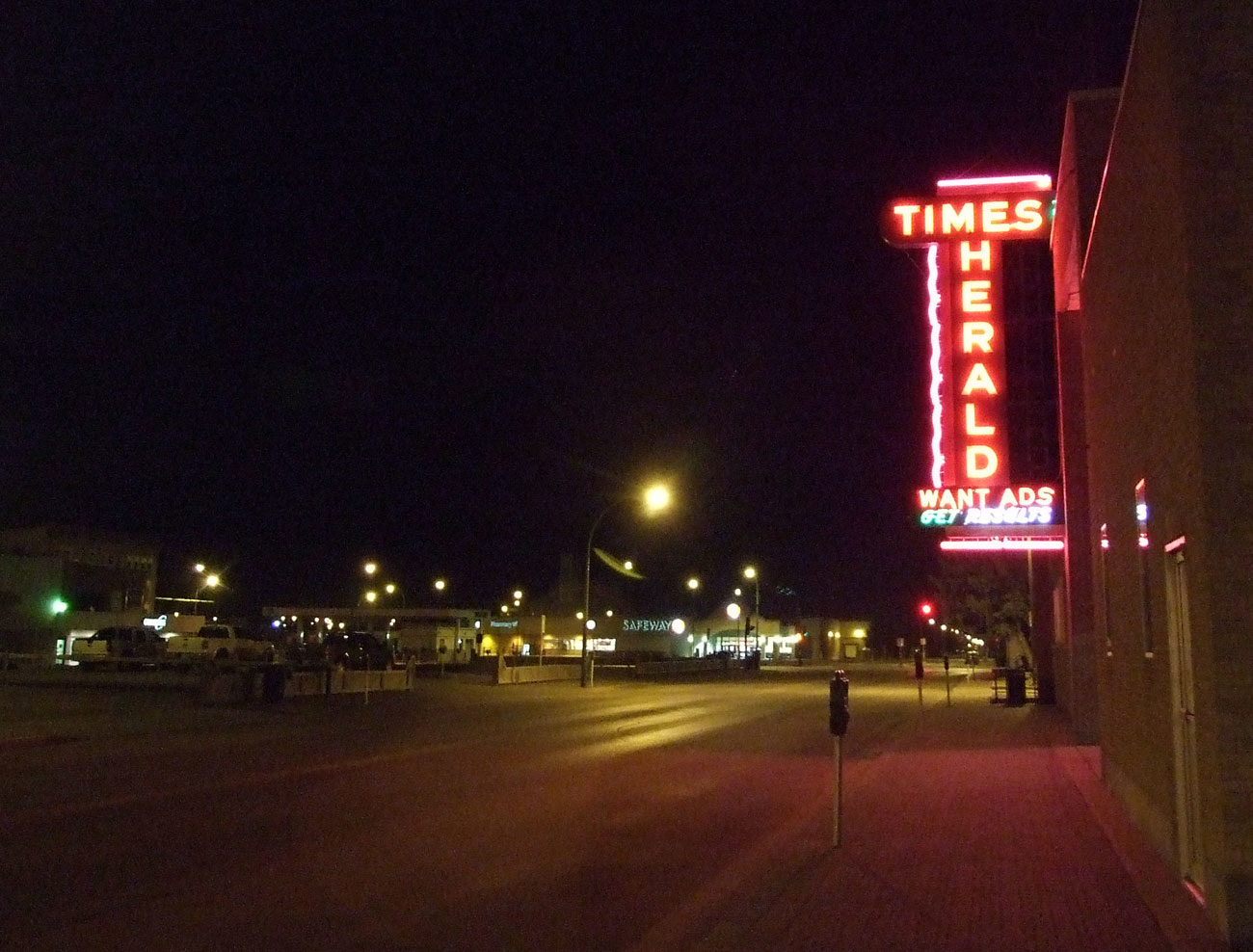What the closure of the Moose Jaw Times-Herald means for young journalists
To this day, the highlight of my journalism career was shooting a Rolling Stones concert in Regina back in 2006. That night I wasn’t on assignment for the Canadian Press, the Globe and Mail, National Post, Maclean’s or the Toronto Star, all clients I shoot for now. I was accredited by the world’s greatest rock ‘n’ roll band because I was the photographer at the little old Moose Jaw Times-Herald.
Mind you, I did call the promoter twice a day every day for a month to procure that press pass. After a month he finally broke down and hooked me up just to get me off his case. But if it weren’t for my position at the Times-Herald, I would have never gotten that press pass. And if it weren’t for the Times-Herald, my career, and I’m sure the careers of countless other journalists, would have played out much differently.
The Times-Herald is the latest—but surely not the last—casualty of a dismal newspaper death march. After 128 years of operation, it will run its final story on Dec. 7. One hundred and twenty eight years. Think about that.
In April of 1889, when the Times-Herald began, Saskatchewan was a place where a few buffalo still roamed. In New York, The Wall Street Journal didn’t exist yet.
Think about how many different bylines have appeared in the Times-Herald over all those years. Perhaps the most well-known was the late Peter Gzowski, of CBC Morningside fame. He too got his start at the Times-Herald, as city editor in 1957. He didn’t work there long but decades later it was not uncommon for wide-eyed fans from all over Canada to pop into the newsroom and ask, “Can I see Peter Gzowski’s desk?” “Right there in the corner,” I’d say, and invite them to belly up at it.
When the bad news broke that the presses are stopping in Moose Jaw, I was moved by the number of journalists that came out of the wiki-woodwork to share condolences and experiences, all very similar to mine.
When I started there, fresh out of journalism school in 2004, we got to do everything: news, features, sports, court, arts and entertainment, snap our own photos for each story and often help lay it all out. Every reporter also had to write a column a month. The only thing I didn’t do was sell ads or draw editorial cartoons; they would have let me if I’d asked. I was also the staff photographer and shot nearly every photo the paper ran.
My contract, which I framed and hung on my office wall a few years ago, reads, “Your salary will be $22,100.00 per annum ($850.00 paid bi-weekly), less deductions and withholdings.” It was the best job—and worst pay—I ever had. If I could do it all over again I’d pay them that.
As a journalism instructor, I like to think students learn everything they need to know in the classroom. They don’t. Not even close. Internships and their first paid gigs are where everything begins to click. Which is why local newspapers like the Times-Herald are important. Just off the top of my head I can think of nine of my students from the last six years who got their first bylines and published their first photos at the Times-Herald.
According to the the Public Policy Forum’s January 2017 report, The Shattered Mirror, 225 weekly and 27 daily newspapers have closed or been merged since 2010. Earlier this fall, I participated in a round table with Karina Gould, federal minister of democratic institutions. The topic was “The impact of digital technology on the democratic process in Canada.” We could all agree Facebook, fake news and declining ad revenues are largely to blame for the death of all those papers.
What Minister Gould wanted to know was: What can the government do to stop the carnage? When it came time for my two cents I told her that if the government is going to continue supporting CBC, it should start supporting CBC’s competitors, many of which, in Saskatchewan anyway, lose their best and brightest reporters to CBC because they simply can’t compete with the Mother Corp’s salaries.
Before Gould could answer, the moderator, who oddly enough also got his start at a local Saskatchewan newspaper, breezed past my comment and changed the topic. So to finish my thought, I don’t believe the answer is to bail out or fund struggling newspapers and their broken business models. But I do believe The Shattered Mirror’s recommendations are a good start.
And as a both a taxpayer and a guy who gambled on journalism and still has some skin in the game, I’d happily put my money on one recommendation in particular, lucky No. 7, “establish a local mandate for the Canadian Press,” adding on a non-profit local news service with arms-length federal funding.
Meanwhile, I’m sad 25 people are losing their jobs. I’m sad the lights will go out on that glorious orange neon sign atop the Times-Herald. And I still can’t wrap my head around what a community of 33,000 people with no news looks like. But what makes me the saddest is thinking of all the young journalists starting out in Saskatchewan who will now have one less local newspaper to get their start at.
Mark Taylor is a freelance photojouralist, instructor and internship coordinator at the University of Regina School of Journalism.




